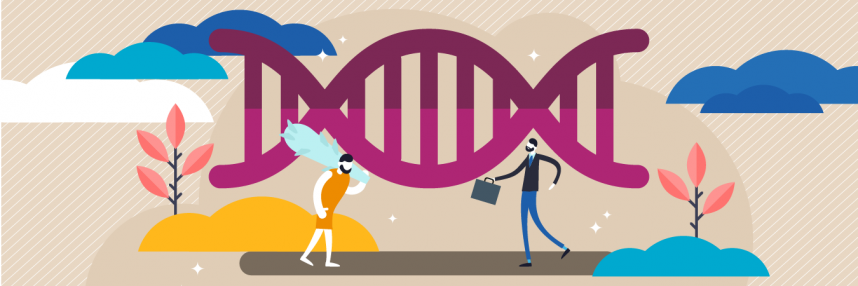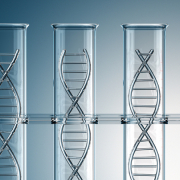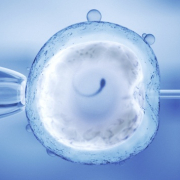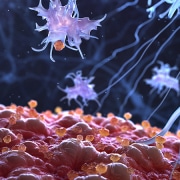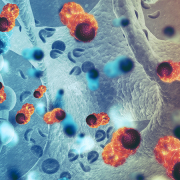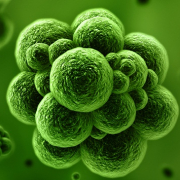Covid-19 ‘neanderthal’ gene variants explained
In light of new research, we revisit the role our genome plays in the severity of Covid-19 symptoms
Since the beginning of the Covid-19 pandemic, this blog has reported on how variations in the human genome can affect our response to the virus, influencing how ill we are likely to become if infected with SARS-CoV-2.
Now, further research on an area of variation we covered one year ago has provided an explanation for varying disease severity and may offer a target for developing treatments.
‘Neanderthal’ genes
Neanderthals were a subspecies of humans who lived across Europe and Asia before modern humans existed. When modern humans migrated out from Africa, there was some interbreeding between them and neanderthals, meaning that most humans without African ancestry do have a small amount of neanderthal DNA in their genomes.
Two separate regions of DNA believed to be inherited from neanderthal ancestors have been identified as having significant effects on the likelihood of serious illness as a result of SARS-CoV-2 infection.
Chromosome 12 variant: increased resistance
Researchers in Sweden and Germany have identified a region on chromosome 12 that appears to reduce a person’s risk of developing severe illness from Covid-19. Their research indicates that people whose genome matched neanderthal DNA in this region were 22% less likely to end up in intensive care after being infected compared to other people of the same age.
The region of chromosome 12 is located close to a group of genes called OAS, which are known to encode enzymes that break down viral proteins. Further research has shown that people who express higher levels of OAS1 are less likely to become infected with Covid-19, and are less likely to become severely ill if they do.
Chromosome 3 variant: increased risk
The same researchers also identified a region on chromosome 3 that we covered previously in this blog. People whose DNA matches the neanderthal genome in this area have a higher risk of hospitalisation and respiratory failure after infection with SARS-CoV-2.
Now, new research has uncovered the mechanism for this difference: it hinges on a gene called LZTFL1, which is also found on chromosome 3. The region in which the neanderthal variant is found affects activation of this gene, and those people who have the neanderthal DNA sequence at that location have increased LZTFL1 expression.
LZTFL1 affects the cells lining the lungs and trachea, and overexpression makes it easier for the SARS-CoV-2 virus to bind and infect cells.
Now the mechanism is understood, doctors can assure patients with this variant that vaccination will be effective for them, as the issue is with the lung cells and not the immune system.
Applicability to all
As previously mentioned, most people of African heritage do not have neanderthal DNA, so it may seem that these results are less applicable to them. Researching these neanderthal DNA regions, however, has ultimately pointed to the genes and LZTFL1, which are present in all humans.
Therefore, any therapies that target or seek to modify the activity of these genes would potentially be applicable to everyone.
–


